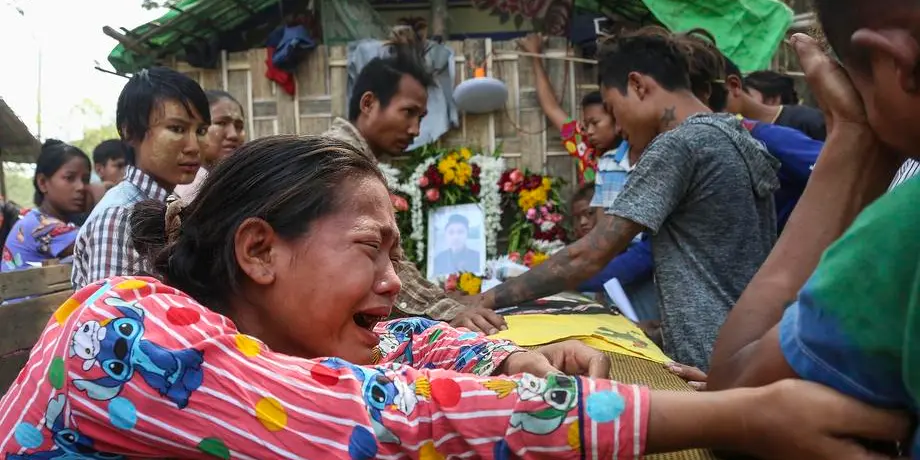
Myanmar: MPs demand ASEAN action in response to damning UN report
March 16, 2022

JAKARTA – Southeast Asian parliamentarians have called on the Association of Southeast Asian Nations (ASEAN) to take urgent and immediate steps to alleviate the suffering of Myanmar’s people in response to a report the office of the United Nations High Commissioner for Human Rights (OHCHR) submitted to the Human Rights Council this week. The report found that the military has engaged in “systematic and widespread human rights violations and abuses”, some of which may amount to war crimes and crimes against humanity.
“We’re soon approaching one year since ASEAN agreed on the Five Point Consensus, a year in which the bloc’s disastrous failure to make progress on these points has effectively given the Myanmar military license to commit what this UN report has concluded may amount to the gravest crimes against humanity,” said Charles Santiago, chair of ASEAN Parliamentarians for Human Rights (APHR) and a Malaysian Member of Parliament (MP). “Security forces have shown a flagrant disregard for human life, using air raids and heavy weapons on populated areas, deliberately targeting civilians.”
“Meanwhile, the current ASEAN Chair, Cambodian Prime Minister Hun Sen, has attempted to engage with the criminal junta of Min Aung Hlaing unilaterally, undermining and delaying any meaningful steps ASEAN might have taken to save lives. ASEAN is politically and morally responsible for addressing this catastrophic situation in Myanmar, directly caused by the military junta,” Santiago said.
In addition to accusing the military’s State Administration Council (SAC) of manipulating the “legal framework to facilitate military rule”, it said the military’s seizure of power has left the country facing “violence on a massive scale”, including arbitrary detentions, unnecessary and disproportionate use of force against peaceful protesters, extrajudicial killings and ill-treatment and torture in custody.
The report was published on the same day that Hun Manith, the son of ASEAN Chair Hun Sen, welcomed a Myanmar military delegation to Phnom Penh for the 19th ASEAN Military Intelligence Meeting. APHR condemns this meeting as a potential legimitization of the junta, whose crimes against the people continue to mount.
It is little wonder that the report specifically named ASEAN for failing to achieve tangible results, APHR added. The other ASEAN members must push Cambodia, as the current chair, for concrete actions to address the crisis. The OHCHR report further supports the clear and urgent need for the regional bloc to respond, or risk increased damage to its already weakening credibility.
ASEAN, and specifically its Chair, must immediately discontinue inviting any other junta representatives to all ASEAN official meetings until there is an end to violence, all political prisoners are freed, and the will of the people for fully-fledged democracy has been heard, APHR said.
ASEAN must also begin a dialogue with the National Unity Government in accordance with its own consensus and, as the UN OHCHR report puts it, for the “international community (to) do everything within its power to support the people of Myanmar and turn this human rights catastrophe into an opportunity”.
“It is shocking that more than 14 milllion people in Myanmar, a fifth of the population, are in need of life-saving humanitarian assistance, and yet ASEAN has still only provided aid to support the COVID-19 response. The Five-Point Consensus plan to provide aid through the ASEAN Humanitarian Assistance Center was doomed to fail from the start, but it is not too late to act. ASEAN should now focus its collective political will to help people in need and support local non-state actors and networks that the people already trust to distribute aid,” Santiago said.
ASEAN Parliamentarians for Human Rights (APHR) was founded in June 2013 with the objective of promoting democracy and human rights across Southeast Asia. Our founding members include many of the region's most progressive Members of Parliament (MPs), with a proven track record of human rights advocacy work.